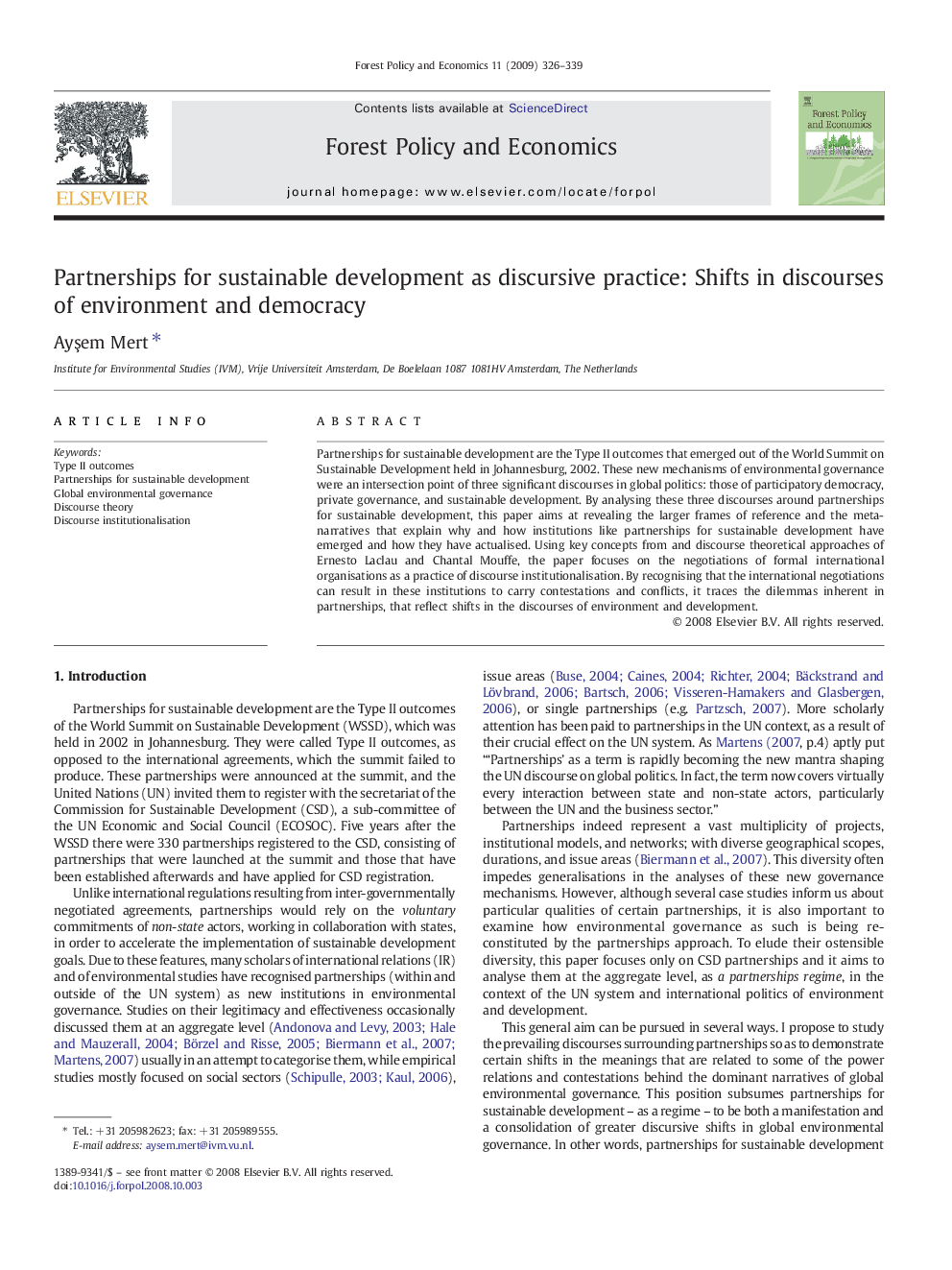| Article ID | Journal | Published Year | Pages | File Type |
|---|---|---|---|---|
| 91284 | Forest Policy and Economics | 2009 | 14 Pages |
Partnerships for sustainable development are the Type II outcomes that emerged out of the World Summit on Sustainable Development held in Johannesburg, 2002. These new mechanisms of environmental governance were an intersection point of three significant discourses in global politics: those of participatory democracy, private governance, and sustainable development. By analysing these three discourses around partnerships for sustainable development, this paper aims at revealing the larger frames of reference and the meta-narratives that explain why and how institutions like partnerships for sustainable development have emerged and how they have actualised. Using key concepts from and discourse theoretical approaches of Ernesto Laclau and Chantal Mouffe, the paper focuses on the negotiations of formal international organisations as a practice of discourse institutionalisation. By recognising that the international negotiations can result in these institutions to carry contestations and conflicts, it traces the dilemmas inherent in partnerships, that reflect shifts in the discourses of environment and development.
